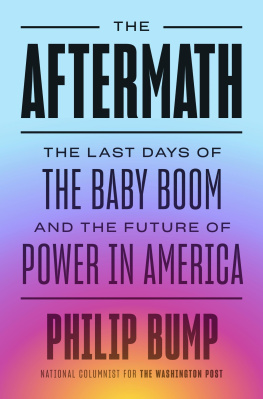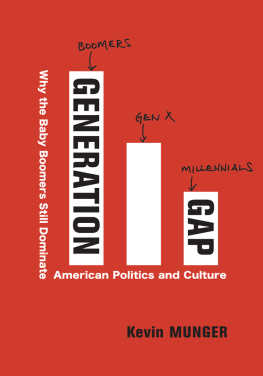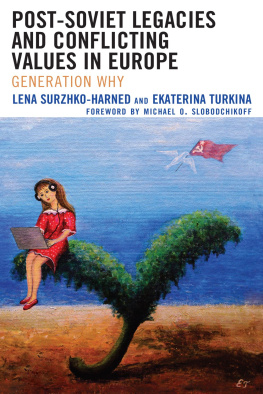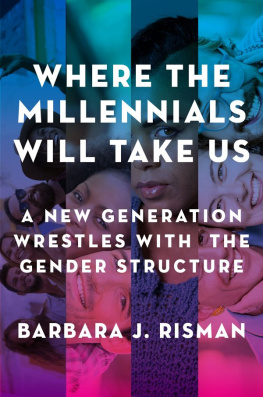Paul Taylor - The Next America: Boomers, Millennials, and the Looming Generational Showdown
Here you can read online Paul Taylor - The Next America: Boomers, Millennials, and the Looming Generational Showdown full text of the book (entire story) in english for free. Download pdf and epub, get meaning, cover and reviews about this ebook. year: 2014, publisher: PublicAffairs, genre: Home and family. Description of the work, (preface) as well as reviews are available. Best literature library LitArk.com created for fans of good reading and offers a wide selection of genres:
Romance novel
Science fiction
Adventure
Detective
Science
History
Home and family
Prose
Art
Politics
Computer
Non-fiction
Religion
Business
Children
Humor
Choose a favorite category and find really read worthwhile books. Enjoy immersion in the world of imagination, feel the emotions of the characters or learn something new for yourself, make an fascinating discovery.

- Book:The Next America: Boomers, Millennials, and the Looming Generational Showdown
- Author:
- Publisher:PublicAffairs
- Genre:
- Year:2014
- Rating:3 / 5
- Favourites:Add to favourites
- Your mark:
The Next America: Boomers, Millennials, and the Looming Generational Showdown: summary, description and annotation
We offer to read an annotation, description, summary or preface (depends on what the author of the book "The Next America: Boomers, Millennials, and the Looming Generational Showdown" wrote himself). If you haven't found the necessary information about the book — write in the comments, we will try to find it.
America is in the throes of a demographic overhaul. Huge generation gaps have opened up in our political and social values, our economic well-being, our family structure, our racial and ethnic identity, our gender norms, our religious affiliation, and our technology use.
Todays Millennialswell-educated, tech savvy, underemployed twenty-somethingsare at risk of becoming the first generation in American history to have a lower standard of living than their parents. Meantime, more than 10,000 Baby Boomers are retiring every single day, most of them not as well prepared financially as theyd hoped. This graying of our population has helped polarize our politics, put stresses on our social safety net, and presented our elected leaders with a daunting challenge: How to keep faith with the old without bankrupting the young and starving the future.
Every aspect of our demography is being fundamentally transformed. By mid-century, the population of the United States will be majority non-white and our median age will edge above 40both unprecedented milestones. But other rapidly-aging economic powers like China, Germany, and Japan will have populations that are much older. With our heavy immigration flows, the US is poised to remain relatively young. If we can get our spending priorities and generational equities in order, we can keep our economy second to none. But doing so means we have to rebalance the social compact that binds young and old. In tomorrows world, yesterdays math will not add up.
Drawing on Pew Research Centers extensive archive of public opinion surveys and demographic data, The Next America is a rich portrait of where we are as a nation and where were headedtoward a future marked by the most striking social, racial, and economic shifts the country has seen in a century.
Paul Taylor: author's other books
Who wrote The Next America: Boomers, Millennials, and the Looming Generational Showdown? Find out the surname, the name of the author of the book and a list of all author's works by series.












